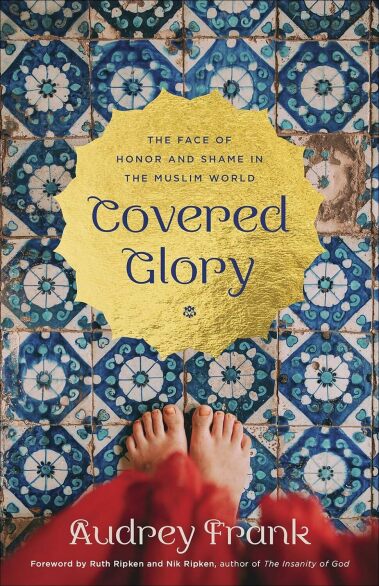
This disturbing book by Audrey Frank is extraordinarily inspiring: within all the painful stories (real stories, full of shame), there’s extraordinary life, hope and redemption.
Though it is a Christian book about honor and shame in the Muslim world, its application is far wider. And whilst most of its stories are about the particular vulnerabilities of being female, it is full of application to men and boys, too.
Whether or not this is her intent, she deftly encourages committed Christians to share their lives and their faith with those of other faith backgrounds, by telling story after story of Muslim friends searching for truth.
It is written for a Global North audience, but I’ll be recommending it to Global South friends – and to friends of other faiths who are open to reading the Christian Scriptures.
In many of the stories, Frank throws light on the ways that cultures perceive things differently: like the Muslim friend who - in a discussion with the author about having changed her surname on getting married - told her: ‘Shame on you! You should never give away your father’s name. How will you know who you are and where you come from?’
As Frank points out, ‘Amal’s question exposed the foundation of honor. Knowing who we are and where we come from is the core of personal identity. This knowledge leads either to honor or shame, particularly for those from that worldview.’
She goes on, ‘I never knew my father and had struggled with shame my whole life. When I thought about Amal’s question, I could only conclude that there is a higher source of honor, an ultimate genesis of every person’s identity, a transcendent belonging that bonds humanity together and instils it with value.’
The theological narrative focuses on a communal shame and honor-based discussion, from the Genesis narrative onwards.
The death of Jesus on the cross is seen as the means through which honor is restored: ‘True honor invites relationship with a God who comes near and whispers our name, bestowing us with unmerited worth, simply because he loves us.’
‘Sin has soiled the soul of mankind since the first dirty lie in Eden.’
‘Honor goes by many ordinary names: clean, accepted, loved, good. And around the world, humankind made in God’s image longs to be called by those honorable names. A little girl who feels alone in a prison of abuse, as I one was, longs to be loved. The young woman trafficked for her body wonders if she will ever be clean again. The man who wrestles with his addiction to pornography wonders if he can ever be the good husband and father he wants to be…the young jihadist straps a bomb to his chest, hoping with all his might that with his sacrifice, Allah will finally call him accepted.’
Her chapter on guilt, shame and fear is especially helpful, as are her sympathetic insights into contemporary Muslim cultures.
And all the way through, she demonstrates how Jesus meets the needs of people of all cultures. For example, when the story of Jesus’ encounter with the woman caught in adultery (John 8) comes to life in the life of a marginalised, abused mother forced into prostitution.
As Frank points out, all the Bible’s writers wrote from honor-shame cultural perspectives. So we would do well to revisit Scripture, with honor-shame spectacles, to understand the Bible more deeply. Frank’s excellent book can help us to do that.
Audrey Frank. Covered Glory – the Face of Honor and Shame in the Muslim World’. Harvest House Publishers, Eugene, Oregon, 2019. ISBN 978-0-7369-7548-3; eBook ISBN: 978-0-7369-7549-0.